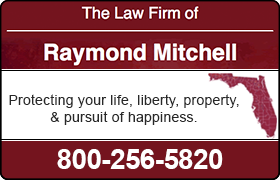Port Charlotte Bankruptcy Lawyer, Florida
Sponsored Law Firm
-
 x
x

Click For More Info:
-
The Law Firm of Raymond Mitchell
3717 Del Prado Blvd. South Cape Coral, Florida 33904 » view mapLee County Bankruptcy Lawyer We Help You Survive Financial Attacks
We strive to protect your freedom and rights and provide high quality legal services to you in a professional, respectful, realistic and honest manner.
800-256-5820  Raymond B. Mitchell Cape Coral
Raymond B. Mitchell Cape CoralAttorney At Law - FL, 1994
Regent University School of Law - 1993
 Chapter 7Liquidation
Chapter 7LiquidationA Chapter 7 liquidation proceeding is available to individuals, partnerships, and corporations.
 Chapter 13Reorganization
Chapter 13ReorganizationA Chapter 13 bankruptcy, or "wage earner reorganization" is available only to individuals with regular income.
Includes: Bankruptcy Litigation, Commercial Bankruptcy, Consumer Bankruptcy, Dissolution
Dawn Marie Bates-Buchanan
✓ VERIFIEDDawn Marie Bates-Buchanan, was raised in Venice Florida, where her Father was a Police Officer and where she graduated from local Vence High School. D... (more)


 Raymond B. Mitchell Cape Coral
Raymond B. Mitchell Cape Coral Chapter 7Liquidation
Chapter 7Liquidation

